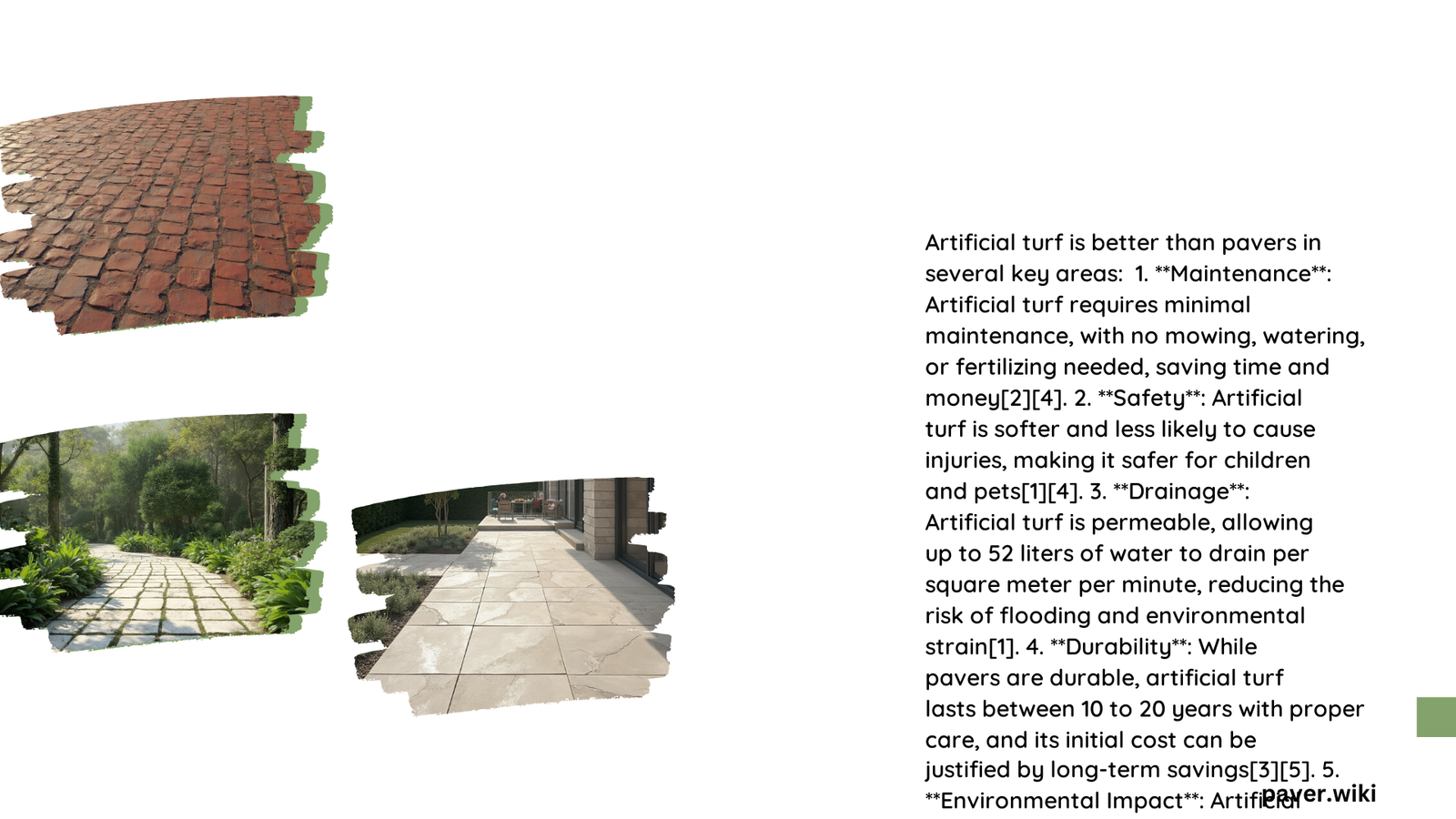When considering outdoor surface solutions, homeowners and landscapers often debate between pavers and artificial turf. Both options offer unique advantages in durability, aesthetics, and maintenance. This comprehensive guide breaks down critical factors to help you determine which solution best meets your specific landscape needs, comparing everything from installation costs to long-term performance and visual appeal.
What Makes Pavers and Artificial Turf Different?
How Do Durability Factors Compare?
Lifespan Analysis
| Material | Average Lifespan | Durability Rating |
|---|---|---|
| Pavers | 50+ years | High |
| Artificial Turf | 15-25 years | Moderate |
Pavers demonstrate superior long-term durability, offering remarkable resistance to environmental stressors. Their robust construction allows them to withstand heavy foot traffic, extreme temperatures, and potential ground movements.
What Are Installation Considerations?
Cost Breakdown
- Pavers:
- Installation cost: $10-$20 per square foot
- Requires professional base preparation
-
Complex design options
-
Artificial Turf:
- Installation cost: $5-$20 per square foot
- Relatively simpler installation process
- Consistent appearance guaranteed
Can Weather Impact Performance?
Pavers excel in diverse climatic conditions, maintaining structural integrity through freeze-thaw cycles. Artificial turf offers excellent water drainage but may experience temperature-related challenges in extremely hot environments.
How Do Maintenance Requirements Differ?
Maintenance Complexity
- Pavers:
- Occasional pressure washing
- Potential resealing every 2-3 years
-
Minor joint sand replacement
-
Artificial Turf:
- Regular debris removal
- Occasional infill replenishment
- No mowing or fertilizing required
What About Aesthetic Versatility?
Pavers provide unparalleled design flexibility with numerous color, texture, and pattern options. Artificial turf offers consistent green appearance but limited design variations.
Which Option Provides Better Property Value?
While both options can enhance property aesthetics, pavers typically offer a more significant return on investment. They create a sophisticated, permanent landscape feature that appeals to potential buyers.
What Environmental Factors Should You Consider?
Ecological Impact Comparison
| Factor | Pavers | Artificial Turf |
|---|---|---|
| Water Usage | Low | Very Low |
| Heat Retention | Moderate | High |
| Recyclability | High | Moderate |
How Do Load-Bearing Capabilities Compare?
Pavers demonstrate superior load-bearing capabilities, making them ideal for driveways, heavy traffic areas, and structural applications. Artificial turf performs best in recreational and decorative settings.
Final Recommendation

The choice between pavers and artificial turf depends on your specific requirements. Pavers offer long-term durability and design flexibility, while artificial turf provides low-maintenance, consistent appearance.
Recommended Selection Criteria
- Choose Pavers If:
- Seeking long-term investment
- Require complex design options
-
Need load-bearing surfaces
-
Choose Artificial Turf If:
- Prioritizing low maintenance
- Desire consistent green appearance
- Have limited landscaping budget
Conclusion
Both pavers and artificial turf present compelling advantages. Your decision should align with specific landscape goals, budget constraints, and aesthetic preferences.
